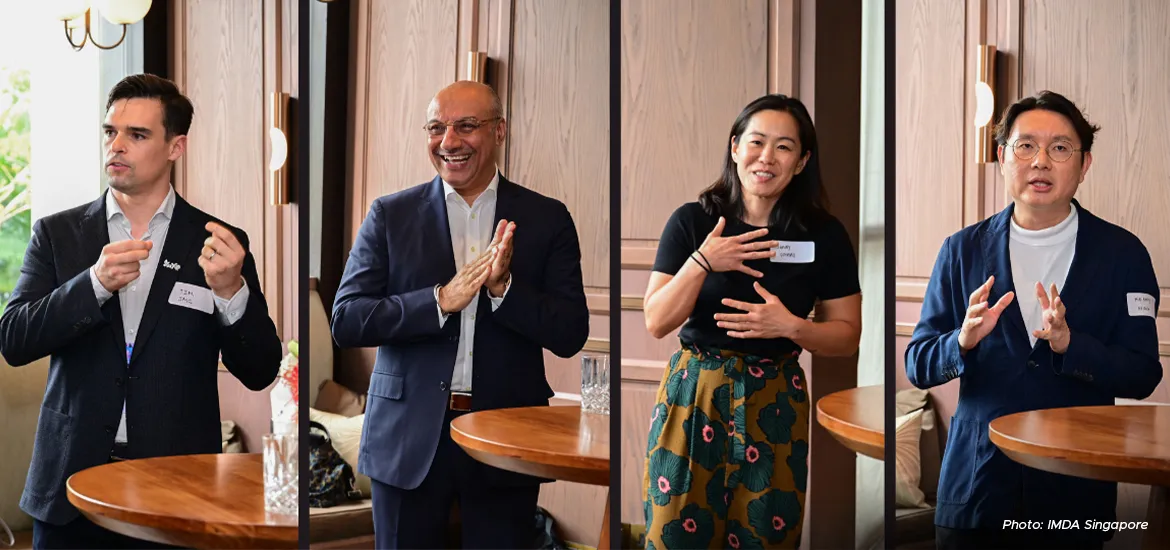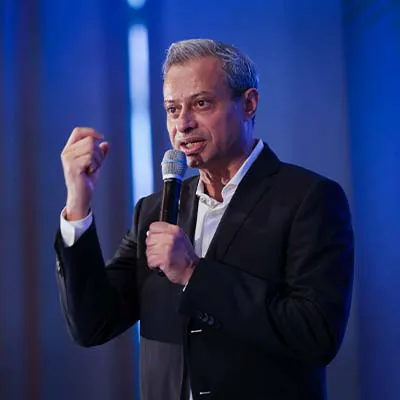The transformative potential of Generative Artificial Intelligence (Gen AI) is clear, but unlocking that potential is a much more uncertain prospect. Luckily, businesses can tap into a wide range of resources, capabilities, and partners to make their AI implementation plans less intimidating.
During a lunch hosted by the EDB at the Asia Tech x Singapore Summit (ATx Summit), leaders from the world’s most exciting tech companies spoke about the peril and promise of AI, and dispensed advice for businesses about to embark on their own AI journey.
Here’s some of the key takeaways:
1. SCALE EFFECTIVELY: FOLLOW THESE THREE RULES
According to Google Cloud’s APAC Vice President, Karan Bajwa, to fully harness the power of AI, enterprises must adopt a thoughtful and strategic approach. Here are three key considerations to guide your AI journey:
- The Model Mindset: While it's tempting to chase the latest AI models, it's crucial to align your choice with specific business needs and objectives. Consider the practical applications of different models and select those that offer the most tangible benefits for your organisation.
- The Impact-Driven Use Case: Before diving into AI projects, carefully evaluate their potential impact on your business. Focus on use cases that offer clear commercial value and contribute to your overall strategic goals.
- The Skills Strategy: Ensure your team has the necessary skills and expertise to effectively implement and manage AI initiatives. Karan noted: “A lot of organisations are getting on with the journey without having the required skills in their own organisation. Staff are left with something they don't know what to do.” Outsourcing in the short term or upskilling can help you steer clear of this challenge. Building a strong internal AI capability will empower your organisation to embrace AI with confidence.
2. LESS [POWER] IS MORE: DON’T FORGET ABOUT ENERGY EFFICIENCY
The computational demands of AI – from training foundational models to large-scale inferencing – can be cost-prohibitive because of the sheer energy required. Adopting more energy efficient tools, tech, and infrastructure can be the difference between success and a red-line disaster.
This is where providers such as Sustainable Metal Cloud (SMC) come in. According to SMC co-founder Tim Rosenfeld, the company’s commercial-scale GPU immersion cooling technologies allows it to “cut the energy consumed by an AI computer by up to 50 per cent” compared to conventional cloud services providers. He added: “And, if you can reduce the energy required to run a training model, you can substantially increase the scale of what you’re doing.” An added benefit: energy-efficient AI is greener, too, making solutions like SMC’s both an environmentally and financially prudent decision.
Discover how SMC’s cutting-edge data centers are creating a greener future for AI >>








